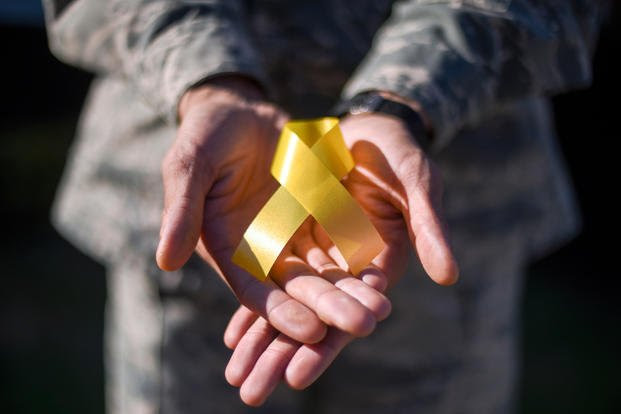Trump OKs 2 Laws Aimed at Helping Veteran Mental Health and Reducing Suicide

President Donald Trump on Saturday signed two major pieces of legislation to address the problem of suicide, including bills designating “988” as the three-digit phone number for the national suicide hotline and providing government grants to localities and nonprofits that serve veterans with mental health issues.
Trump signed the Cmdr. John Scott Hannon Veterans Mental Health Care Improvement Act, which will require the Department of Veterans Affairs to hire additional suicide prevention coordinators and give it leeway to award grants to organizations that focus on veterans’ mental health issues.
Read Next: Marine Vet and Former Rep. Duncan Hunter to Serve Sentence in West Texas Prison Camp
VA Secretary Robert Wilkie, who had pressed for flexibility in awarding funds to community organizations and localities at the forefront of veterans programs, praised the legislation, which will expand mental health services at VA facilities and in communities.
“About 60 percent of the Veterans who die by suicide aren’t getting care from VA, so it’s vital we do all we can to offer intervention and care to veterans where they live. This bill takes a strong and meaningful step in that direction,” Wilkie said in a release Saturday.
Before the veterans suicide legislation made it to the president’s desk, however, it had been stripped of a key provision to promote safe storage of firearms and raise awareness among veteran patients and their families of the risks of having guns at home.
Advocates had hoped the bill would contain a provision requiring that medical providers who care for veterans be trained to talk to their patients about safe storage and handling of weapons. The White House’s veterans suicide prevention strategy calls for more programs focused on lethal means safety, but no measures were included in the legislation signed Saturday.
Still, lawmakers said the legislation will help ensure that “no veteran falls through the cracks.”
“This new law combines the best ideas from veterans, veterans service organizations, the VA, and mental health care advocates to deliver innovative solutions that’ll help heal invisible wounds of war through increased access to care, alternate therapies and local treatment options,” said Sen. Jon Tester of Montana, the ranking Democrat on the Senate Veterans Affairs Committee.
“Many of our veterans are suffering from daunting, sometimes overwhelming, mental health challenges, that have only been made worse by this pandemic, and lack access to modern, effective and compassionate mental health care and suicide prevention services,” said Committee Chairman Sen. Jerry Moran, R-Kan. “This is a significant day for veterans.”
Nearly 20 veterans and actively serving troops die by suicide each day. Firearms are involved in roughly 70 percent of those deaths, according to the VA. But studies show that reducing quick access to a firearm through means such as safe storage also reduces the rate of suicide.
Veterans groups and mental health advocates supported the mandatory means restriction training, put forth in the bill initially by Rep. Lauren Underwood, D-Ill., a public health nurse. Some groups, however, opposed it, saying that any threat to the 2nd Amendment right to bear arms might dissuade a veteran from seeking medical treatment.
The VA and Department of Defense clinical practice guidelines published in May recommend lethal means counseling for patients considered at risk for suicide. They are encouraged to raise the issue; work with patients to develop a plan for safe storage of firearms, prescriptions or other objects that could be used for suicide; and follow up with patients on implementation of the plan.
Cmdr. John Scott Hannon, for whom the bill is named, was a former member of SEAL Team Six who led SEAL Team Two. Having been diagnosed with post-traumatic stress and traumatic brain injury, he was actively involved in helping other veterans with war-related physical and mental trauma. He volunteered with the National Alliance for Mental Illness in Montana and helped develop a group therapy program with the VA and Montana Wild, working to rehabilitate injured birds of prey.
He took his own life Feb. 25, 2018, using a personal firearm.
Also on Saturday, Trump signed the National Suicide Hotline Designation Act of 2020, making 988 the telephone number for the suicide and mental health crisis hotline system, which will be fully implemented by July 2022. When it is, service members and veterans will continue to be able to press 1 after dialing to be connected directly to the Veterans Crisis Line.
The Veterans Crisis Hotline is staffed 24 hours a day, seven days a week, at 800-273-8255, press 1. Services also are available online at www.veteranscrisisline.net or by text, 838255.
— Patricia Kime can be reached at . Follow her on Twitter @patriciakime.
Related: Military Suicides Reached All-Time High in 2019; Impact of COVID-19 Remains Unclear

No comments yet.